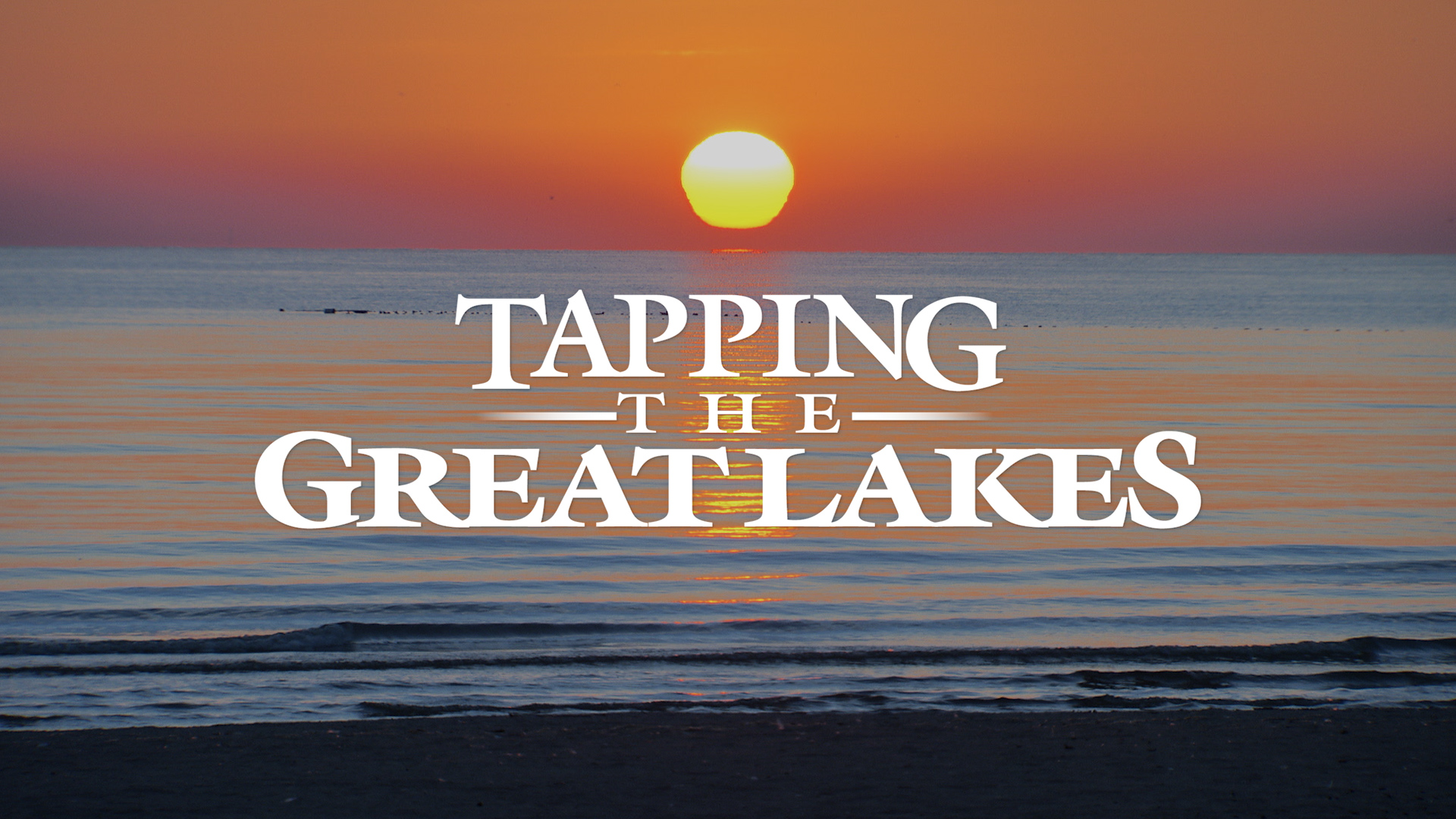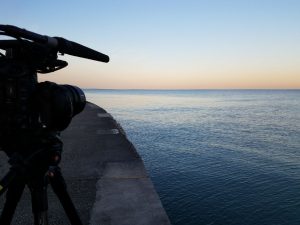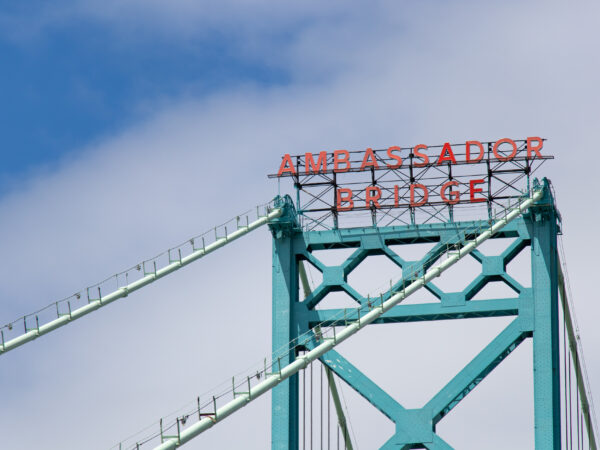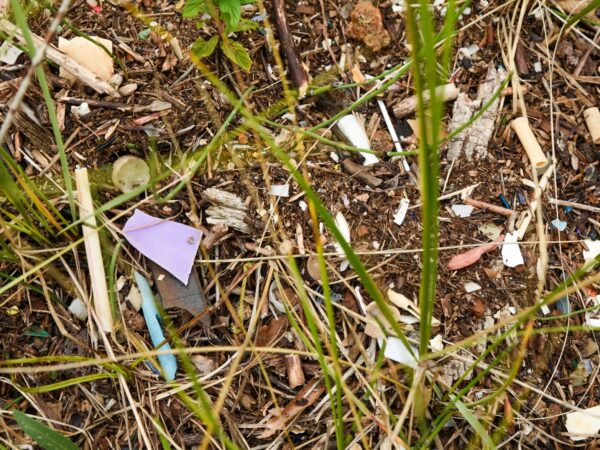
 Water. Some people call it the new oil. Its value is increasing as climate change heats up the planet, pollution from carbon dioxides, microplastics, invasive species and lead becomes more threatening, population and development explodes, and the need for fresh clean drinking water grows.
Water. Some people call it the new oil. Its value is increasing as climate change heats up the planet, pollution from carbon dioxides, microplastics, invasive species and lead becomes more threatening, population and development explodes, and the need for fresh clean drinking water grows.
But who owns the water?
It’s a question that is difficult to answer, and gets a wide range of responses, especially in the Great Lakes Region, where more than 40 million people get their drinking water from five freshwater lakes. The Great Lakes contain approximately 20 percent of the world’s surface fresh-water supply and 95 percent of the surface fresh water in the U.S.
In the new half-hour documentary about water withdrawal called “Tapping the Great Lakes”, Detroit Public Television’s Great Lakes Bureau takes a deep dive into methods of water withdrawal and their impact on the Great Lakes.
It premiered on March 26th at 7:30 pm on Detroit Public Television.
First, we look at Nestle, a company that withdraws millions of gallons of water from aquifers near Lake Michigan, bottles it, and sells it in the U.S. Next, we research the Waukesha, Wisconsin, controversy and ask how and why a city outside the Great Lakes Basin has been granted the right to use Lake Michigan water for its drinking water supply.
 Who’s watching over Great Lakes water? Are the laws strong enough to protect the region’s drinking water supply? Should global corporations have the right to use Great Lakes water to make big profits? What industries are allowed to use massive amounts of water? Are aquifers being depleted by certain practices, or is the groundwater able to replenish itself?
Who’s watching over Great Lakes water? Are the laws strong enough to protect the region’s drinking water supply? Should global corporations have the right to use Great Lakes water to make big profits? What industries are allowed to use massive amounts of water? Are aquifers being depleted by certain practices, or is the groundwater able to replenish itself?
Can the Great Lakes survive continued attempts to diminish its water supply?
To answer these questions, Detroit Public Television’s Great Lakes Bureau travelled throughout the Great Lakes Region to interview citizens, scientists, water experts, tribal leaders, lawmakers and environmental activists to explore landmark decisions and controversial practices that could set a precedent for the future use of Great Lakes Water. “Tapping the Great Lakes” takes you from inside Nestle headquarters where we talk with corporate heads to a small diner in Evart, Michigan where locals discuss their concerns about their home wells and ponds; from huge government buildings in Lansing and Chicago to small historic homes; from the shores of the Great Lakes to tiny streams and inland lakes.
Please watch “Tapping the Great Lakes” on DPTV this coming Monday night, March 26th, at 7:30pm, and give us your comments. http://greatlakesnow.org/tapping #tappingtheGL
Check your local listing.
4 Comments
-
I consider our Great Lakes the most valuable resource we have left.To allow greasy positions and industrialest to depleat that natural resource. Is beyond crimanel. As a child I grew up in Monroe Michigan and watched business and government kill Lake Erie. We must not allow this to happen again. In Northern While living in Northern Michigan I worked with the people to stop the State from burying PBB contaminated cattle on the top of our water shed, come on people wake up and fight to protect what is our’s.
Sincerely,
Chuck Smith -
What station is this on in the Detroit Area??
-
Thanks for asking! The main channel on Detroit Public TV – check your cable or satellite company for details on channel.
-
-
To get access to Great Lakes water Waukesha spend over $1 million on a single public relations firm, hired a Washing D.C. Lobbying firm weeks before the Application was submitted, which employed 2 full time staffers to lobby the 7 other states, and got politicians to turn the WDNR from an objective unbiased protector of the environment and state resources to assisting businesses in trampling sound protective environmental science ; and they were good they to
them to heard and read. Waukesha has set the precedent on how to get access to Great Lakes water, even if 7 other states were never shown the original Application to the state of Wisconsin. The Great Lakes Compact failed. Why? Because there is no legal defense fund and no state will use it’s own resources to defend it.
Now, the latest estimate for this project is $286 million plus the cost of purchasing water from Milwaukee. All for a community of 71,000. Sewer and water bill will increase from $70 per month to $200 to $400 per month for an average family., depending on how much water you use. Waukesha wil economically purge it’s community of poor, elderly, handicapped, economically challeged, renters and home owners.
If Waukesha had installed Radium filters on wells 5,6,7 and 9, the court order would have been dropped and there would have been no application for Great Lakes water because the primary source of water, deep confined aquifer has risen to it’s highest
level since 1973.
The bar has been set.




